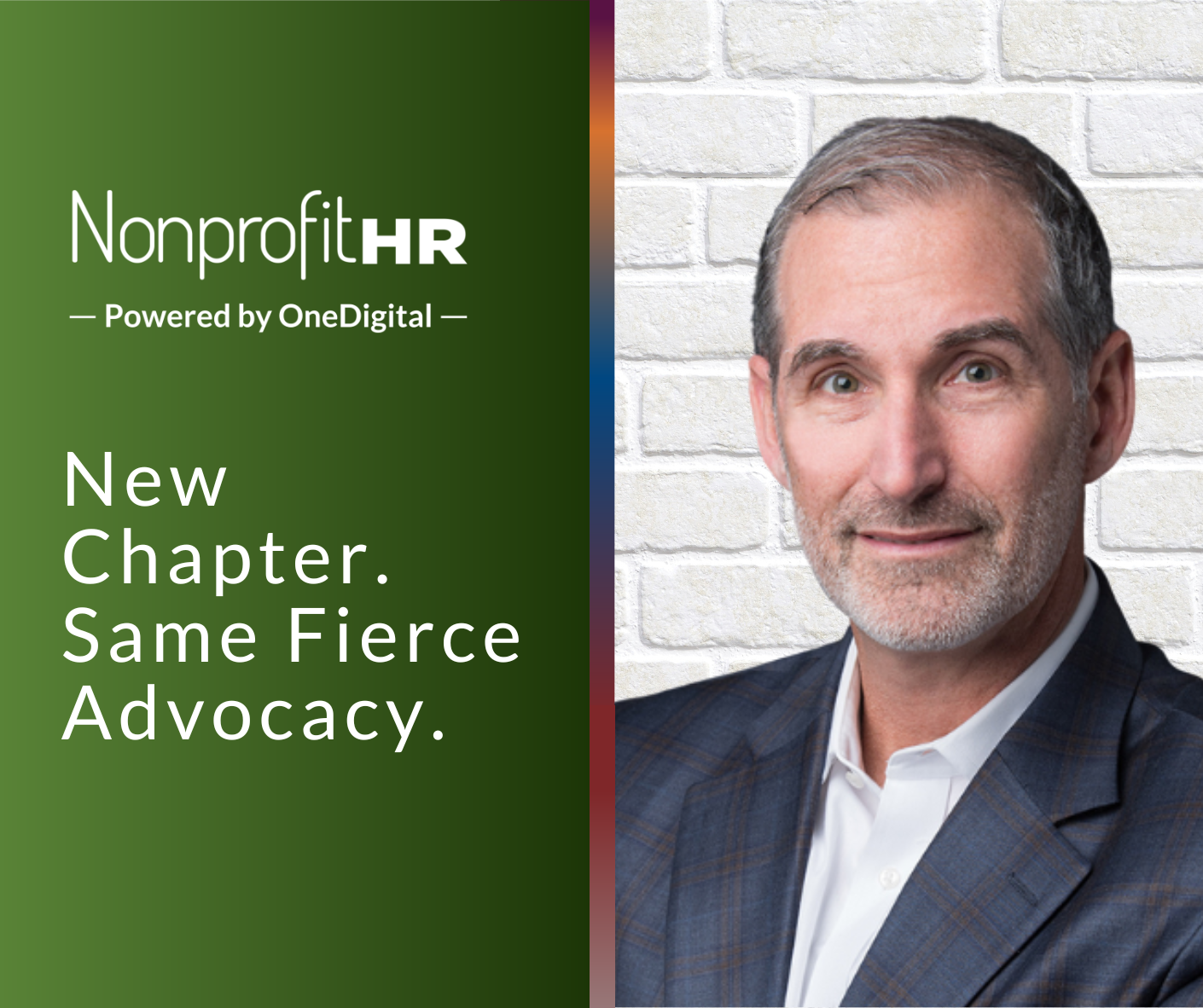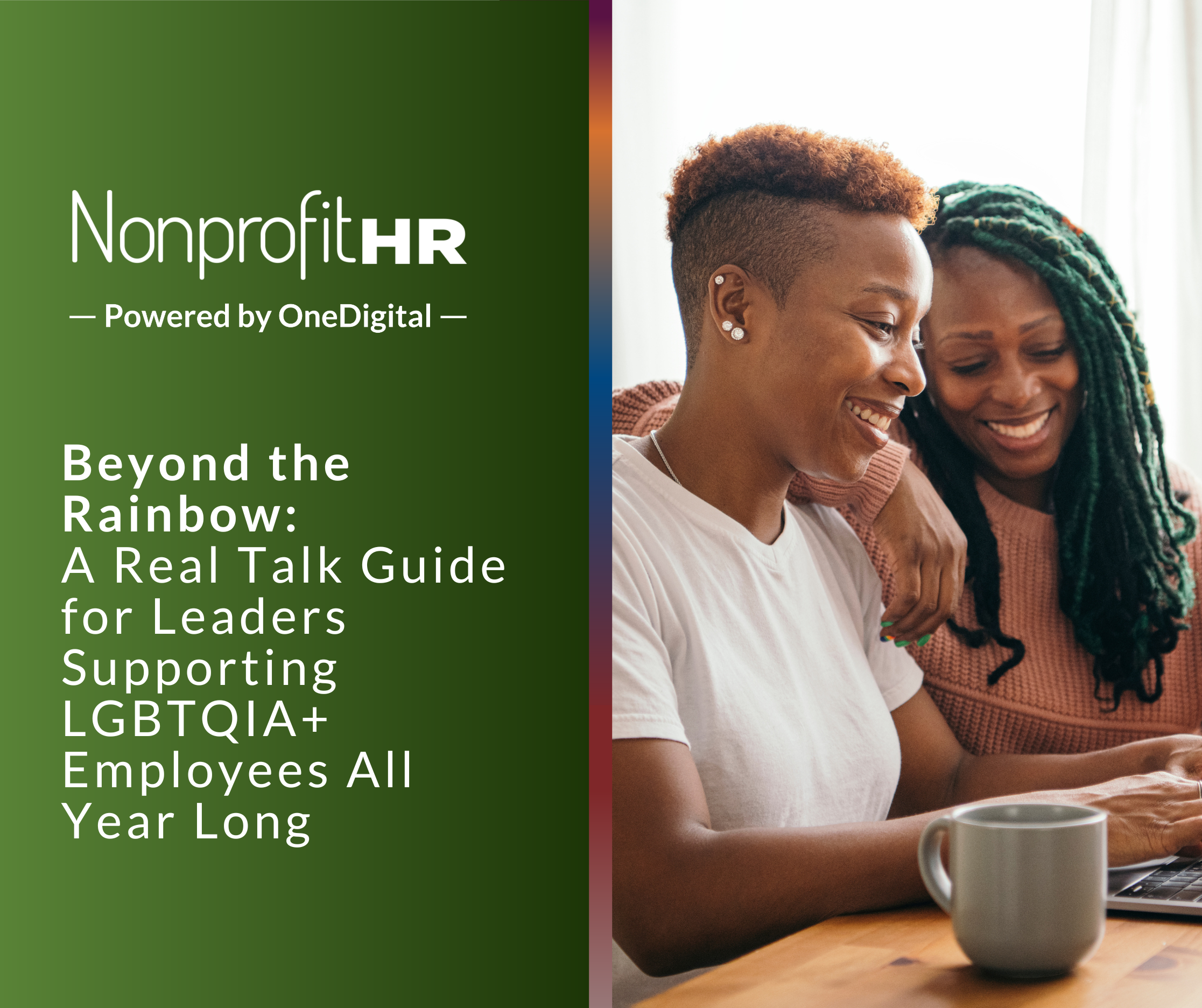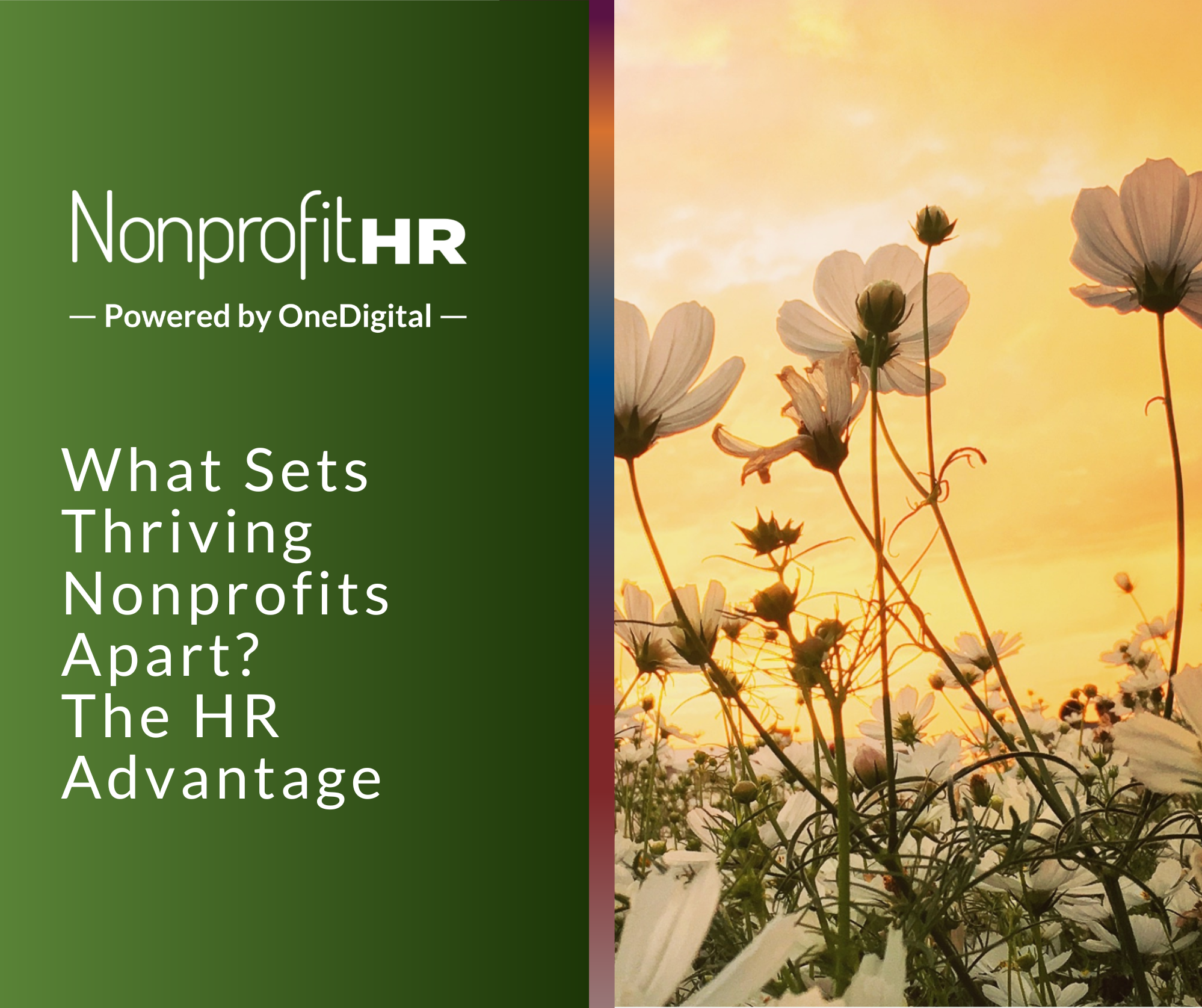WTOP: 5 ways nonprofits can…
The District of Columbia is considering closing the private small group health insurance market and requiring all small employers (those with less than 100 employees) – including nonprofits – to purchase employee health insurance through its new health insurance exchange (DC Health Benefits Exchange) as required by the Patient Protection and Affordable Care Act (PPACA). Considering this decision is being made before the Exchange is operational and before it’s been tested, Nonprofit HR is concerned about the affect this may have on your employee health insurance benefit plans.
Do you know how closing this market may affect your nonprofit? Do you like your current health plan? Closing the small group market may limit your organization’s ability to continue offering its current health insurance plan simply because you are a small employer.
If you don’t want the private small group market to close in Washington, DC then you need to act now. The DC Council is expected to vote on this issue May 20th but they want to hear directly from small business leaders about their concerns regarding this decision.
Join Nonprofit HR and the Small Employer Alliance for Affordable Health Care in our efforts to ensure the DC Council knows we don’t want the private small group market to close.
You can help several different ways.
First, register to testify at the May 13th Council on Health Roundtable hearing. To register to testify contact Melanie Williamson, Legislative Counsel, via email or by phone at (202) 741-2112 by May 9th. Your oral testimony cannot exceed three minutes. Witnesses testifying should submit written testimony to Ms. Williamson in advance of the hearing.
Second, join the Small Employer Alliance for Affordable Health Care (Alliance) and lobby the DC Council. Nonprofit HR is joining the Alliance on visits to DC Council members next week. If you want to participate or just need more information, please email Julie Gallion.
Finally, email the Washington, DC City Council about your concerns. You can find contact information for the Council through the Alliance website.
Still need more information? Call or email Julie Gallion (202-785-2060) at Nonprofit HR with questions about the issue and how to get your voice heard.
What is This All About? What Does This Mean for My Organization?
Nonprofit HR has been participating in and monitoring on behalf of our nonprofit clients the discussions surrounding the creation of the DC Health Benefits Exchange as required by Patient Protection and Affordable Care Act. Below is some basic information regarding the exchange and its creation.
Health Insurance Exchange Overview
The Patient Protection and Affordable Care Act (PPACA) mandates that each state, and the District of Columbia put in place a health benefits exchange also known as a health benefits market place. The Exchange will consist of a website through which residents and small business can purchase health insurance. States may operate their own exchange, allow the federal government to operate an exchange or partner with the federal government to operate an exchange.
The PPACA also mandates that insurance plans be structured based on their actuarial value. The actuarial value is the perceived cost of medical expenses. To make the system easier to understand, the PPACA has developed what are called “Metal Levels”. Each metal level has an actuarial value associated with it. There are four metal levels: Bronze, Silver, Gold and Platinum. A Platinum metal level pays 90% of the actuarial value where a Bronze metal level pays 60% of the actuarial value.
An exchange is similar to online marketplaces like Amazon.com as it enables the purchase of products (insurance plans) sold by many different companies (insurance providers) on one website. An individual wishing to purchase insurance can enter criteria into the website and the system will make recommendations on insurance plans based on that criteria. The consumer can compare plans against each other and purchase a plan that meets their criteria and budget. These exchanges or marketplaces are scheduled to open in October of 2013. The exchange will consist of an individual marketplace and a Small businesses market place. The Small Business marketplace is called the Small Business Health Options Program (SHOP).
About the District of Columbia Health Benefits Exchange (DCHBX)
The District of Columbia has chosen to operate its own exchange. In most states, the exchange has no affect on the individual or group market as consumers including businesses will continue to be able to purchase insurance through the current private market. Vermont and the District of Colombia, however have decided to close the private individual and small group market so all insurance products available to individuals or small groups (employers with less than 100 employees) will only be available for purchase through the exchange. Employers that do not currently offer insurance to employees will only be able to purchase insurance through the exchange beginning in January 2014, employers with less than 50 employees currently offering insurance will only be able to purchase insurance through the exchange beginning with their 2015 health insurance renewal. Beginning January 2016, this applies to groups with 50 to 100 employees also.
As it stands today, District of Columbia employers purchasing insurance through the exchange will have the option of purchasing coverage through a variety of providers and with varying degrees of coverage but in a more limited manner than is currently available. However, a recent change to the Affordable Care Act allows states to provide only one benefit plan for purchase through the exchange. DC government has not released a decision on this matter but may be considering limiting the plans in the exchange to one that would eliminate all employer choice.
Once the employer chooses the plan options to offer to employees, and indicates what portion of the premiums will be paid by the employer and what portion the employees will pay, the employees will be able to choose and enroll in a plan using the SHOP website.
Help will be available for employees making choices on the website and through an 800 number managed by the Exchange.
Once the enrollment period closes (or an eligible employee enrolls mid-year), the exchange notifies the employer of who is enrolled in what plan and what payroll deductions should be taken from each employee’s paycheck.
The employer deducts premiums from the employee’s paycheck. The insurance company invoices the Exchange each month and the Exchange invoices the employer.
What This Means to Small Businesses and Nonprofits In Washington, DC
Generally this insurance exchange could work out to be the best option available for the smallest organizations (note: the PPACA defines a small business as a business having less than 100 employees) to purchase insurance. The thought is that because all individuals (regardless of employment status) are now purchasing through the Exchange, the risk pool will be diverse enough to mitigate the financial risks to the health insurance companies. Basically, the exchange would be similar to one large company with a diverse risk pool. The exchanges will likely enable very small businesses (2-10 employees) to purchase insurance that is not available to them in the current market. Therefore, there are groups that would likely benefit from purchasing coverage through the exchange.
However, many small businesses, particularly groups with more than 10 employees who are able to purchase quality health insurance in the private market, have the following concerns about the potential ramifications of closing the private and small group market. The following is a list of concerns:
- By closing the private small group market, employers with less than 100 employees who are currently offering quality insurance to their employees that their employees are quite happy with, would likely have to change their plans and the way in which they purchase insurance, as well as the way in which employees enroll in insurance.
- The exchanges are brand new to the Federal Government and most states and have not been tested. Going back to the previous example on how the exchanges are similar to Amazon, forcing small employers into the exchange is like forcing all Americans to purchase their shoes through Amazon. The IT infrastructure that supports and runs the exchange is still being developed. To our knowledge, the system is not ready for testing yet. There is quite a bit of concern among small business owners that the decision to close the market is being made before all facts about how exactly the exchange will function are available.
- It is unclear what plans will be available in the exchange and what insurance companies will sell through the exchange. Contrary to much of what is being discussed at the government level, small employers, particularly those over 10 are in fact able to purchase high quality insurance plans for their employees. The decision to close the small group market is being made without consideration of what would otherwise be available to small groups outside of the exchange.
Nonprofit HR’s Position on the DCHBX’s Decision to Close the Small Group Market
Because the closure of the small group market affects so many of the groups we serve, we are stepping out in front of the issue to help raise awareness and give voice to the unique effects of the Exchange on the DC nonprofit sector.
Nonprofit HR takes a position in support of the implementation of the DC Exchange and agrees that having a government-run exchange will provide greater access to health insurance for individuals and some small groups (less than 10 employees). However, we do not support the plan to force all small groups to purchase insurance through the exchange effectively closing the Private Small Group Health Insurance Market.
The DC Health Benefits Exchange is not operational, it has not been tested, we do not know exactly how it will operate and what complexities and challenges will be found once it is operational. We do not know what insurance plans will be offered through the Exchange, which insurance companies will be selling insurance through the exchange, or the price of insurance that will be sold through the exchange.
We are concerned that closing the small group market with so many unknowns will result in limiting choice for small employers (namely nonprofits), cause confusion among employers and employees and increase the complexity of administering and communicating insurance benefits to employees. We are concerned that employers will lose the ability to choose the robust health insurance plans that they currently offer.
Finally, we are concerned that small nonprofit organizations (those with less than 50 employees) may lose talented employees to large employers outside of Washington, DC who are able to offer benefit plan options that better meet the unique needs of employees than those that will be offered in the DC Exchange.
Call to Action: What Can You Do To Help Stop The Closure of the Small Group Market?
- Join the Small Employer Alliance for Affordable Healthcare Options to help form one voice for small businesses in DC. Through the Alliance you can email your City Council members and learn more about the exchange.
- Contact your City Council Members independently at 202-724-8000 or 1350 Pennsylvania Ave NW Washington, DC 20004.
- Testify at the next DC Council Committee on Health
- Share with Nonprofit HR your stories about the rich benefits you offer allow you to compete for talent with the for profit marketplace. Allow us to share these stories in our communications about this important issue. Contact Julie Gallion, Senior Human Resources Consultant ([email protected]) to share your story.
Resources for additional information
- DCHBX: www.hbx.dc.gov
- Small Employer Alliance for Affordable Healthcare Options: http://cqrcengage.com/dchealthinsurancemarketplace/home
- DC Council: http://www.dccouncil.washington.dc.us/committees/committee-on-health





























